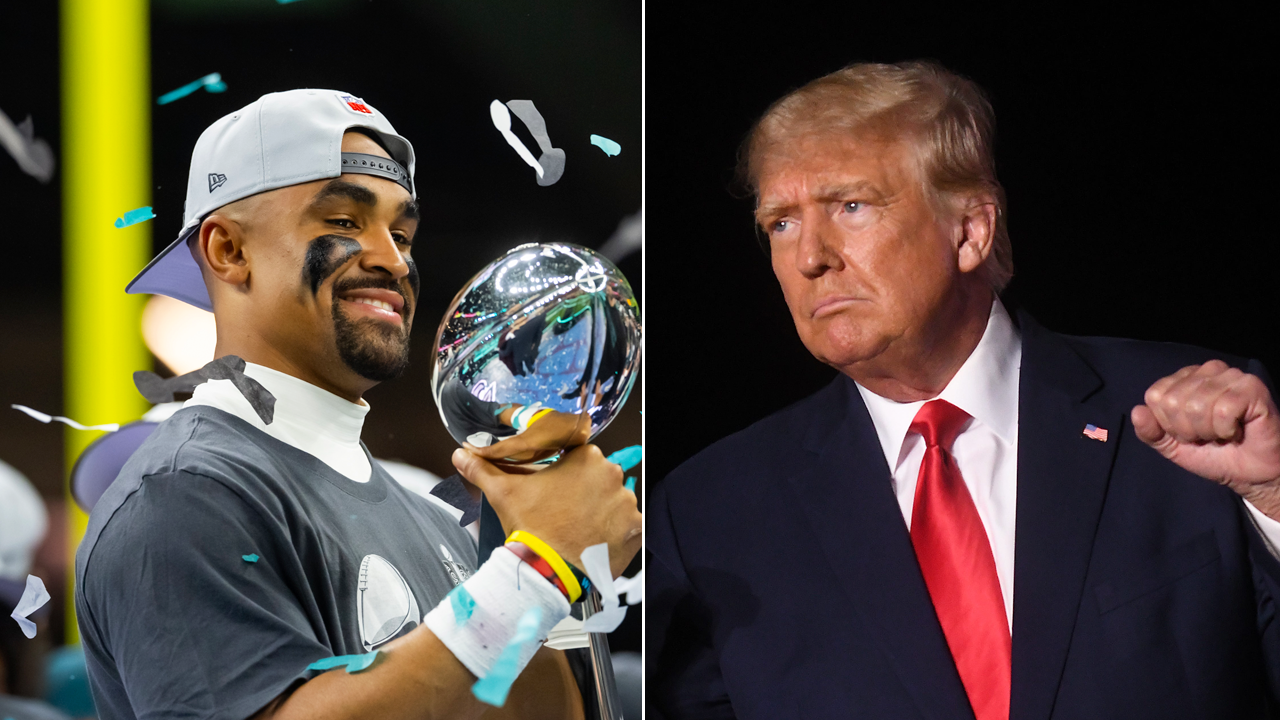From Novak Djokovic to bad scheduling, women get more disrespect than celebration at Ballon d’Or ceremony

On a select evening in autumn, France Football Paris host the the glitziest night of football.
Players, coaches and VIPS from clubs around the world attend the event in Paris to honour the recipients of the Ballon d’Or and the Ballon d’Or Féminin, given to the men’s and women’s player of the year, respectively.
The outfits are outstanding and the talent is overflowing. I still remember Inter Miami FC’s Leo Messi conquered the event in 2021 in a sequined blazer matching his three young sons.
France Football magazine, which sponsors the awards, only offered a women’s category five years ago. Prior to that women were only on site as presenters or dates. The inclusion of women players on the grand stage is important nonetheless, and the awards are nothing to scoff at. The Ballon d’Or awards are decided by journalists in the top 100 FIFA-ranked countries for men, 50 for women, from a list of nominees.
I am not a voting member of the Ballon d’Or because if I had any influence with France Football I would be vocal about the timing of the award ceremony. It falls directly during the FIFA international window, and a vast majority of the players who were nominated (Spain and England dominating the nomination list) did not attend the ceremony.
Beyond disappointing that the <a href=”https://twitter.com/ballondor?ref_src=twsrc%5Etfw”>@ballondor</a> was held during a women’s international break making it pretty impossible for most of the nominees to even attend. Do better!
—@jbeattie91
Spanish midfielder Aitana Bonmati won the prestigious award and it was well deserved. She not only hoisted the World Cup trophy this past summer with Spain, but also took home the Golden Ball as top player in the tournament. Her performance was extraordinary and she merited the Ballon d’Or.
She was able to attend the ceremony in between international duty because of the proximity of cities in Europe. But those too far away or perhaps unlikely to win, such as Mary Earps, Georgia Stanway and Millie Bright of England, Khadija Shaw of Jamaica or Sophia Smith of the U.S., opted to not attend a night that was meant to celebrate them.
The FIFA international window is when players compete in a series of friendlies with their respective national teams to strengthen their rankings or ahead of a major tournament. It is to ensure cohesion of squads when they are in season and widely regarded as imperative in the football ecosystem.
Why the women’s schedule and international window wasn’t regarded when organizing this particular celebration is beyond me. The bright shine of the trophy is dulled by women consistently being an afterthought.
Did not a single person on the France Football committee consider checking any of the women’s schedules? The answer seems to be a clear “non.” Why consider a woman’s attendance when the likes of Messi or Erling Halaand will be there?
It’s deeply unfortunate decision-making because Manchester City, the club that Halaand plays for, not only posted all the nominees in a fantastic photo shoot, but had the sensibility to recognize the women alongside the men.
Nothing says ‘celebrate the achievement of female athletes’ like inviting a male athlete who advocated against equal pay to talk about himself and the completely different sport he plays. <a href=”https://t.co/wknje0Amqz”>https://t.co/wknje0Amqz</a>
—@Stillmanator
And that’s not even the worst part.
At the ceremony, Bonmati was presented the trophy by tennis player Novak Djokovic, who ESPN’s Sophie Lawson aptly writes ” … the No. 1 men’s tennis player who has previously spoken out against equal pay in sport and has no link to women’s football.”
How, in a year when the godmother of women’s sports, Billie Jean King, is still advocating for women’s pay and advancement in sport, does France Football think that Djokovic was a good choice?
Why not invite former award winners? What about some famous women sports celebrities? Have we run out of choices? I can name 100 women who would have been a better choice than a tennis player who doesn’t believe in pay equity for women’s labour in the sports world.
It reeks of disdain when we have barely recovered from an unbelievable end to the World Cup where we witnessed a supreme level of disrespect to women champions by Luis Rubiales, the now former president of the Spanish federation. It isn’t enough that Rubiales was suspended from any football-related activity for three years — that is barely justice for robbing women of their moment.
And it’s something that is being replayed by France Football in a less than subtle manner with its scheduling. It might not be as egregious, but it does nothing to elevate and amplify the successes of women in football when the nominees can’t attend and the presenters are antithetical to what they athletes stand and work for.
I don’t need to feign horror when it comes to soccer culture disrespecting the women’s game. The horror just exists and continues to fester.
Of course, the Ballon d’Or is famous for choosing terrible presenters for the women’s prize. Flashback to the inaugural award when Ada Hegerberg was asked if she knew how to twerk by French DJ Martin Solveig when she went on stage to accept her Golden Ball trophy. You really can’t make this up.
And the reality is that you don’t have to. Women’s soccer is constantly that despite a year where the Women’s World Cup has broken viewership, attendance and financial records. It just doesn’t seem to matter.
The blatant disregard comes from a country that boasts recognizing the top players in the world. But it is also the only country in the world that refuses to allow women in hijab to actually play, coach or officiate there. It should come as no surprise that the disdain and blatant disregard of women athletes will rip through the sequins and blast through the trophies.
Perhaps it’s time for women to create and promote their own celebrations and awards ceremonies sans misogynistic or sexist presenters.
And maybe it’s time for men to hang up their boots on this one and let women organize, create pathways and opportunities for proper recognition, just as they have been doing all along.




